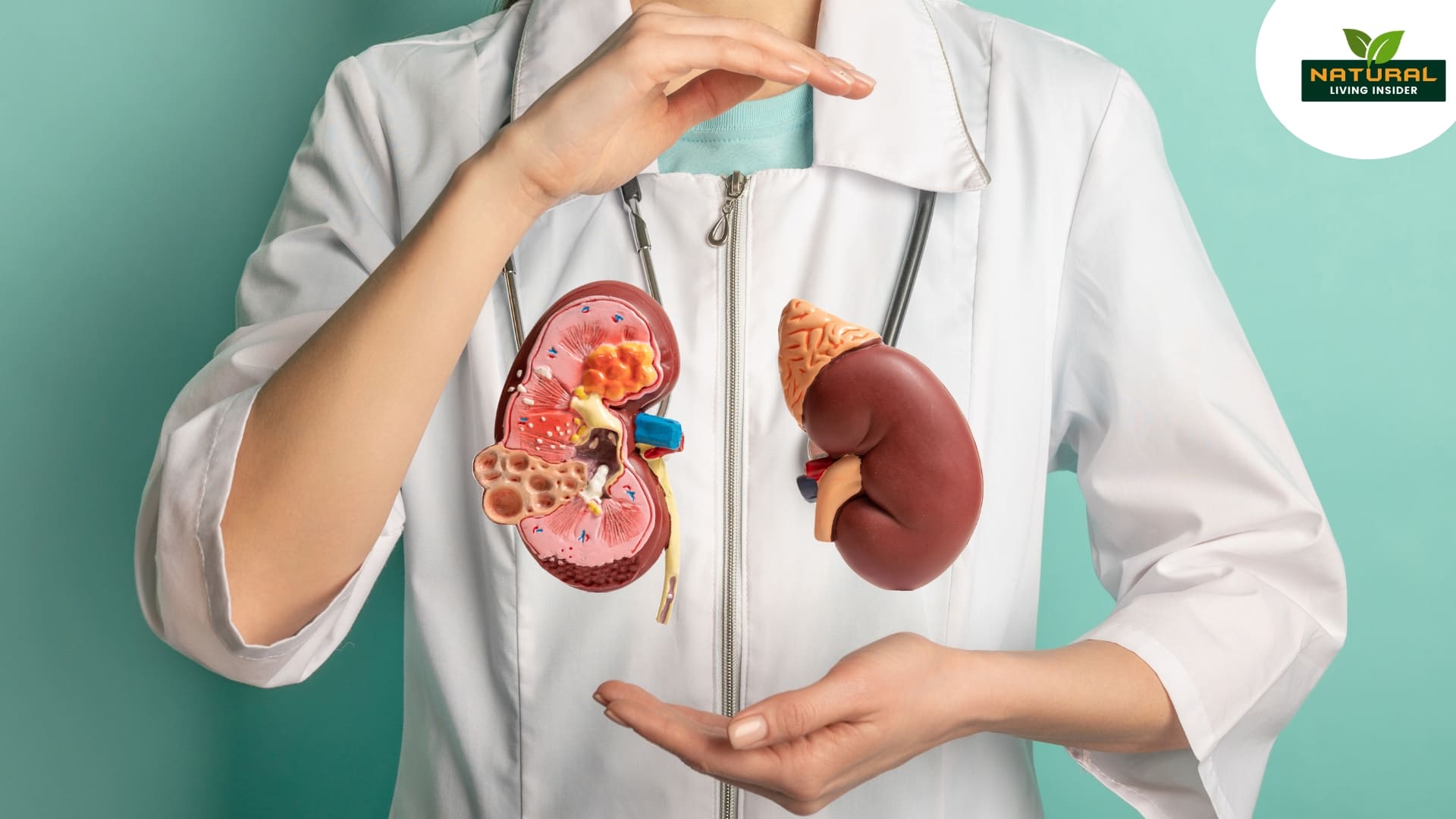
Your kidneys may be small, but they play a huge role in keeping your body balanced and healthy. These bean-shaped organs filter waste and toxins from your blood, regulate fluid levels, balance electrolytes, and even help manage blood pressure. When your kidneys are working well, you feel energized, clear-headed, and well-hydrated. But when kidney function declines, it can affect your whole body — often without obvious symptoms at first.
That’s why it’s essential to take care of your kidneys before problems arise. Luckily, you don’t need extreme changes — just small, consistent habits can make a big difference.
In this post, we’ll cover simple and effective daily tips to support your kidney health — naturally and sustainably.
Table of Contents
Why Kidney Health Matters
Every day, your kidneys filter about 50 gallons of blood to produce just a few quarts of urine. That’s a massive job! They also:
-
Balance your body's fluid levels
-
Remove waste products and excess salts
-
Help control your blood pressure
-
Maintain healthy bones by managing vitamin D
-
Produce hormones for red blood cell production
Ignoring kidney health can lead to chronic kidney disease (CKD), which affects 1 in 7 adults globally. In later stages, kidney failure may require dialysis or transplant.
Preventing Kidney Problems: Here's How
-
Eat a Kidney-Friendly Diet
What you eat has a direct impact on how well your kidneys function. Follow these food tips to reduce stress on your kidneys:
-
Stay hydrated with water, not sugary drinks
-
Eat more fresh fruits and vegetables (especially red grapes, cauliflower, and apples)
-
Reduce salt intake – too much sodium increases blood pressure and harms kidneys
-
Choose lean proteins like fish, chicken, eggs, or legumes
-
Cut back on processed foods and fast food
-
-
Move Your Body Daily
Exercise helps lower blood pressure, reduces blood sugar levels, and promotes overall circulation — all of which support healthy kidneys. You don’t need a gym membership. Try:
-
30 minutes of brisk walking
-
Dancing, yoga, or cycling
-
Stretching or resistance training
Bonus: Physical activity also helps reduce stress — another hidden factor that can influence kidney function!
-
-
Stay Hydrated — But Not Overhydrated
Your kidneys need water to do their job, but balance is key. Drinking 6 to 8 glasses of water a day is enough for most people. Overhydrating can actually strain your kidneys, especially if you have underlying conditions.
Pro tip: Add lemon to your water to help prevent kidney stones naturally.
-
Avoid Smoking and Limit Alcohol
Smoking damages blood vessels, which in turn reduces blood flow to your kidneys. Alcohol, especially in large amounts, causes dehydration and raises your blood pressure — a double hit on kidney function.
If you smoke, talk to your doctor about quitting. It’s one of the best decisions you can make for your kidney and heart health.
-
Keep Your Blood Sugar and Blood Pressure in Check
High blood sugar and high blood pressure are the leading causes of kidney disease. You can manage these by:
-
Eating whole foods and cutting back on sugars
-
Exercising regularly
-
Managing stress
-
Taking medication as prescribed
Get routine blood and urine tests to monitor kidney performance, especially if you’re diabetic or hypertensive.
-
-
Try Natural Kidney-Supporting Herbs (With Caution)
Some herbs have traditionally been used to promote kidney health:
-
Dandelion root tea – a natural diuretic
-
Nettle leaf – supports detoxification
-
Turmeric – anti-inflammatory, good for kidneys and liver
-
Parsley – supports urinary tract health
Always consult your healthcare provider before using herbs, especially if you have kidney issues.
-
-
Be Careful with Painkillers and Supplements
Overusing NSAIDs (like ibuprofen) can harm your kidneys over time. Also, some dietary supplements and protein powders may put extra strain on your kidneys, especially in high doses.
Tip: If you take multiple medications, ask your doctor for a “kidney-safe” review.
-
Get Regular Kidney Function Tests
Even if you feel healthy, regular testing is key for early detection of issues. Ask your doctor for:
-
GFR (Glomerular Filtration Rate) test
-
Creatinine and BUN (Blood Urea Nitrogen) tests
-
Urine tests for protein or albumin
These tests are simple and affordable — and could save your kidneys.
-
Final Thoughts
Your kidneys are silent workers — they don’t often show signs until the damage is done. But by building small, healthy habits now, you can give them the long-term support they deserve.
Whether you’re looking to prevent kidney problems or maintain overall wellness, these kidney wellness tips are simple, effective, and completely natural. One of the easiest ways to begin is by including the best foods for kidney health in your daily meals — like red bell peppers, cauliflower, apples, blueberries, garlic, and cabbage. These foods are low in sodium and rich in nutrients that help reduce inflammation and support kidney function.
Remember, your daily routine shapes your health outcome. Start with one tip today and build from there to support kidney health naturally.



